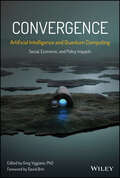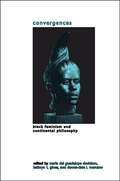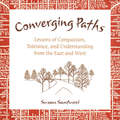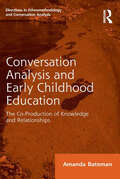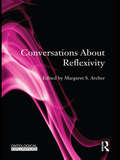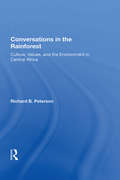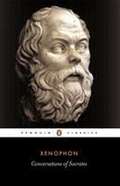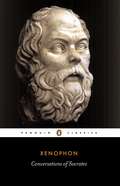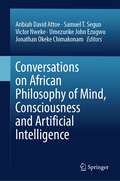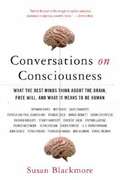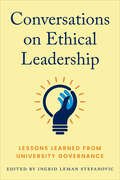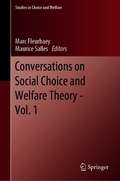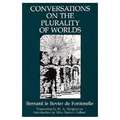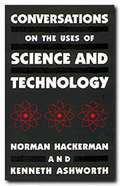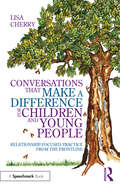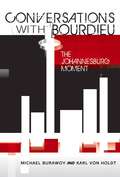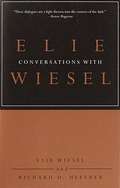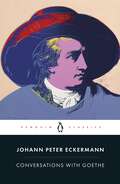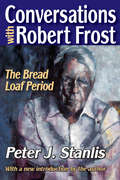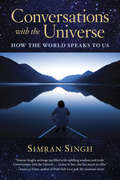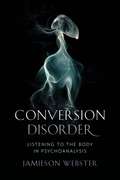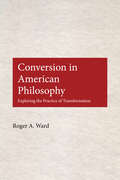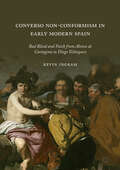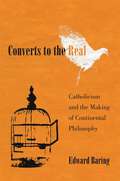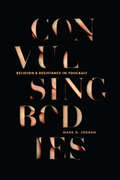- Table View
- List View
Convergence: Social, Economic, and Policy Impacts
by Greg ViggianoPrepare for the coming convergence of AI and quantum computing A collection of essays from 20 renowned, international authors working in industry, academia, and government, Convergence: Artificial Intelligence and Quantum Computing explains the impending convergence of artificial intelligence and quantum computing. A diversity of viewpoints is presented, each offering their view of this coming watershed event. In the book, you&’ll discover that we&’re on the cusp of seeing the stuff of science fiction become reality, with huge implications for ripping up the existing social fabric, global economy, and current geopolitical order. Along with an incisive foreword by Hugo- and Nebula-award winning author David Brin, you&’ll also find: Explorations of the increasing pace of technological development Explanations of why seemingly unusual and surprising breakthroughs might be just around the corner Maps to navigate the potential minefields that await us as AI and quantum computing come togetherA fascinating and thought-provoking compilation of insights from some of the leading technological voices in the world, Convergence convincingly argues that we should prepare for a world in which very little will remain the same and shows us how to get ready.
Convergences: Black Feminism and Continental Philosophy (SUNY series in Gender Theory)
by George YancyA range of themes—race and gender, sexuality, otherness, sisterhood, and agency—run throughout this collection, and the chapters constitute a collective discourse at the intersection of Black feminist thought and continental philosophy, converging on a similar set of questions and concerns. These convergences are not random or forced, but are in many ways natural and necessary: the same issues of agency, identity, alienation, and power inevitably are addressed by both camps. Never before has a group of scholars worked together to examine the resources these two traditions can offer one another. By bringing the relationship between these two critical fields of thought to the forefront, the book will encourage scholars to engage in new dialogues about how each can inform the other. If contemporary philosophy is troubled by the fact that it can be too limited, too closed, too white, too male, then this groundbreaking book confronts and challenges these problems.
Converging Paths
by Susan SantucciIn Converging Paths, Susan Santucci gathers the world's greatest religious insights into one volume that is easy-to-read, thought-provoking, and inspirational. Each short-entry focuses on a single aspect of the wisdom shared by major world religions. Quotations from mystics, philosophers, and contemporary writers help readers make connections between traditional teachings and their own spiritual path. The result is a quick, clear introduction to spiritual traditions from around the world without lengthy, esoteric discussions. These wonderful examples of shared values and religious diversity will appeal to students of comparative religions and anyone seeking to further their spiritual journey.
Conversation Analysis and Early Childhood Education: The Co-Production of Knowledge and Relationships (Directions in Ethnomethodology and Conversation Analysis)
by Amanda BatemanThis book provides insight into the everyday activities co-produced by teachers and young children, demonstrating the fine details of teaching and learning as knowledge is shared through the everyday activities of talk-in-interaction. Adopting an ethnomethodological perspective, together with conversation analysis and membership categorisation analysis, it reveals how teaching and learning are jointly accomplished during activities such as pretend play episodes, during disputes, managing illness and talking about the environment. Through in-depth studies of child-teacher interactions, the book explores the means by which knowledge is transferred and episodes of teaching and learning are co-constructed by participants, shedding light on the co-production of social order, the communication of knowledge and manner in which professional and relational identities are made relevant in interaction. As such, Conversation Analysis and Early Childhood Education will be of interest not only to scholars of ethnomethodology and conversation analysis, but also to those working in the areas of early childhood studies and pedagogy.
Conversations About Reflexivity
by Margaret S. Archer" Reflexivity" is defined as the regular exercise of the mental ability, shared by all normal people, to consider themselves in relation to their (social) contexts and vice versa. In addition to this sociological interest, it allows us to hold idle or trivial internal conversations. Focussing fully on this phenomenon, this book discusses the three main questions associated with this subject in detail. Where does the ability to be "reflexive" comes from? What part do our internal reflexive deliberations play in designing the courses of action we take: subordinate to habitual action or not? Is "reflexivity" a homogeneous practice for all people and invariant over history? In addressing these questions, contributors engage critically with the most relevant studies by luminaries such as G.H Mead, C.S. Pierce, Habermas, Luhmann, Beck, Giddens and Bourdieu. Most contributors are leading Pragmatists or Critical Realists, associated with the "Reflexivity Forum" an informal, international and inter-disciplinary group. This combination of reference to influential writers of the past, and the best of modern theory has produced a fascinating book that is essential reading for all students with a serious interest in social theory or critical realism.
Conversations In The Rainforest: Culture, Values, And The Environment In Central Africa
by Richard PetersonA rich, interdisciplinary study of Central African land ethics incorporating conversations with local rainforest inhabitants that yield vibrant new insights into the dilemmas of sustaining Africa's rainforests and its people. In Conversations in the Rainforest, Richard B. Peterson combines interdisciplinary research and intimate, first-hand convers
Conversations of Socrates
by Xenophon Hugh Tredennick Robin WaterfieldAfter the execution of Socrates in 399 BC, a number of his followers wrote dialogues featuring him as the protagonist and, in so doing, transformed the great philosopher into a legendary figure. Xenophon’s portrait is the only one other than Plato’s to survive, and while it offers a very personal interpretation of Socratic thought, it also reveals much about the man and his philosophical views. In ‘Socrates’ Defence’ Xenophon defends his mentor against charges of arrogance made at his trial, while the ‘Memoirs of Socrates’ also starts with an impassioned plea for the rehabilitation of a wronged reputation. Along with ‘The Estate-Manager’, a practical economic treatise, and ‘The Dinner-Party’, a sparkling exploration of love, Xenophon’s dialogues offer fascinating insights into the Socratic world and into the intellectual atmosphere and daily life of ancient Greece.
Conversations of Socrates
by XenophonAfter the execution of Socrates in 399 BC, a number of his followers wrote dialogues featuring him as the protagonist and, in so doing, transformed the great philosopher into a legendary figure. Xenophon's portrait is the only one other than Plato's to survive, and while it offers a very personal interpretation of Socratic thought, it also reveals much about the man and his philosophical views. In 'Socrates' Defence' Xenophon defends his mentor against charges of arrogance made at his trial, while the 'Memoirs of Socrates' also starts with an impassioned plea for the rehabilitation of a wronged reputation. Along with 'The Estate-Manager', a practical economic treatise, and 'The Dinner-Party', a sparkling exploration of love, Xenophon's dialogues offer fascinating insights into the Socratic world and into the intellectual atmosphere and daily life of ancient Greece.
Conversations on African Philosophy of Mind, Consciousness and Artificial Intelligence
by Samuel T. Segun Aribiah David Attoe Victor Nweke Umezurike John Ezugwu Jonathan Okeke ChimakonamThis book offers a first glimpse into contemporary African Philosophical thought, which covers issues related to the mind-body relationships, the problem of consciousness, the ethics of artificial intelligence, the meaning of life and other topics. Taking inspiration from the conversational tradition in African philosophy, this book not only engages with and takes inspiration from traditional African thought, but also engages with philosophical views outside the philosophical tradition in a bid to present a holistic understanding of the problems that are central to the book. The volume is relevant for professional African philosophers, philosophers of mind, philosophers of AI, undergraduate and postgraduate philosophy students, and African Studies scholars.
Conversations on Consciousness: What the Best Minds Think about the Brain, Free Will, and What It Means to Be Human
by Susan BlackmoreIn Conversations on Consciousness, Susan Blackmore interviews some of the great minds of our time, a who's who of eminent thinkers, all of whom have devoted much of their lives to understanding the concept of consciousness. The interviewees, ranging from major philosophers to renowned scientists, talk candidly with Blackmore about some of the key philosophical issues confronting us in a series of conversations that are revealing, insightful, and stimulating. They ruminate on the nature of consciousness (is it something apart from the brain?) and discuss if it is even possible to understand the human mind. Some of these thinkers say no, but most believe that we will pierce the mystery surrounding consciousness, and that neuroscience will provide the key. Blackmore goes beyond the issue of consciousness to ask other intriguing questions: Is there free will? (A question which yields many conflicted replies, with most saying yes and no.) If not, how does this effect the way you live your life; and more broadly, how has your work changed the way you live? <P><P> Paired with an introduction and extensive glossary that provide helpful background information, these provocative conversations illuminate how some of the greatest minds tackle some of the most difficult questions about human nature.
Conversations on Ethical Leadership: Lessons Learned from University Governance (UTP Insights)
by Ingrid Leman StefanovicHighlighting ethical leadership strategies, Conversations on Ethical Leadership explores what makes for strong, well-informed, morally sound decision-making at all levels of an organization. In addressing a range of challenges faced by universities and applying those lessons to the broader community of the public and private sectors, Ingrid Leman Stefanovic and her contributors tackle a host of issues related to advancing ethics, diversity, inclusiveness, and the art of moral leadership. Each chapter, written by an author with roots in the academy, includes a subsequent commentary by a community leader who highlights the broader takeaways that emerge for society from the university experience. In this way, the book becomes a conversation between the academic and non-academic worlds about issues that affect any prominent organization. It offers a unique range of novel and timely topics, from responsibility-centred budgeting to post-pandemic planning, responsiveness to climate change, Indigenous leadership, free speech, academic integrity, and much more. In doing so, Conversations on Ethical Leadership ultimately reveals how we can build and preserve an ethically responsible sense of purpose at our post-secondary learning institutions and beyond.
Conversations on Social Choice and Welfare Theory - Vol. 1 (Studies in Choice and Welfare)
by Marc Fleurbaey Maurice SallesThis volume presents interviews that have been conducted from the 1980s to the present with important scholars of social choice and welfare theory. Starting with a brief history of social choice and welfare theory written by the book editors, it features 15 conversations with four Nobel Laureates and other key scholars in the discipline. The volume is divided into two parts. The first part presents four conversations with the founding fathers of modern social choice and welfare theory: Kenneth Arrow, John Harsanyi, Paul Samuelson, and Amartya Sen. The second part includes conversations with scholars who made important contributions to the discipline from the early 1970s onwards. This book will appeal to anyone interested in the history of economics, and the history of social choice and welfare theory in particular.
Conversations on the Plurality of Worlds
by Bernard Le Bovier De Fontenelle H. A. Hargreaves Nina R. GelbartSurveying the night sky, a charming philosopher and his hostess, the Marquise, are considering the possibility of travelers from the moon. "What if they were skillful enough to navigate on the outer surface of our air, and from there, through their curiosity to see us, they angled for us like fish? Would that please you?" asks the philosopher. "Why not?" the Marquise replies. "As for me, I'd put myself into their nets of my own volition just to have the pleasure of seeing those who caught me. " In this imaginary conversation of three hundred years ago, readers can share the excitement of a new, extremely daring view of the universe. Conversations on the Plurality of Worlds (Entretiens sur la pluraliteacute; des mondes), first published in 1686, is one of the best loved classics of the early French enlightenment. Through a series of informal dialogues that take place on successive evenings in the marquise's moonlit gardens, Fontenelle describes the new cosmology of the Copernican world view with matchless clarity, imagination, and wit. Moreover, he boldly makes his interlocutor a woman, inviting female participation in the almost exclusively male province of scientific discourse. The popular Fontenelle lived through an entire century, from 1657 to 1757, and wrote prolifically. H. A. Hargreaves's fresh, appealing translation brings the author's masterpiece to new generations of readers, while the introduction by Nina Rattner Gelbart clearly demonstrates the importance of the Conversations for the history of science, of women, of literature, and of French civilization, and for the popularization of culture.
Conversations on the Uses of Science and Technology
by Norman Hackerman Kenneth Ashworth"In the interest of reducing financial support some policy makers in Washington and in state capitols are questioning the contributions of science to society. Or they believe research can be made more useful if it is controlled and directed by government to solve specific problems.<P> The authors disagree with both these strategies and discuss how understanding nature (that is, science) is the underpinning of humankind's progress in improved comforts, economic progress, and health. In making their case they also address the primary requirement of ensuring a pool of competent scientists, mathematicians, and engineers as well as the need for educating non-scientists about science."<P> --BOOK JACKET. Title, Summary field provided by Blackwell North America, Inc. All Rights Reserved
Conversations that Make a Difference for Children and Young People: Relationship-Focused Practice from the Frontline
by Lisa CherryIn this unique book, international trainer and consultant Lisa Cherry invites professionals from education, social work and healthcare to engage in conversations on a range of pertinent topics and issues affecting children and young people today. Divided into three main parts, which introduce attachment, adversity and trauma, each discussion places an emphasis on emotion and the understanding that we have as humans for compassion, empathy and connection. By encouraging collaboration between sectors and exploring a range of intersecting themes, the conversations take the reader on a winding journey to broaden their depth of thinking, reflect on their practice and to consider the central message: that we can bring about social change, one interaction at a time. This book is a call to action and an opportunity to look around and decide what kind of service we want to provide, what kind of community we want to live in and what sort of legacy we want to leave. At a time of ever-present social and political challenges, this book will stimulate conversations on current practice and professional development for the future and is a must-read for everyone working with children and young people.
Conversations with Bourdieu: The Johannesburg Moment
by Michael Burawoy Karl von HoldtPierre Bourdieu (1930-2002) is the most influential sociologist of our time. His works take in education, culture, sport, literature, painting, class, philosophy, religion, law, media, intellectuals, methodology, photography, universities, colonialism, kinship, schooling and politics. Not much remains outside Bourdieu’s sociological eye. His works are widely read across disciplines and he was one of the most prominent public intellectuals in France. Conversations with Bourdieu presents the first comprehensive attempt at a critical engagement with Bourdieu’s theory as a totality. Michael Burawoy constructs a series of imaginary conversations between Bourdieu and his nemesis – Marxism – from which he silently borrowed so much. Starting with Marx, and proceeding through Gramsci, Fanon, Freire, de Beauvoir, and Mills, Burawoy takes up the challenge Bourdieu presents to Marxism, simultaneously developing a critique of Bourdieu and a reconstruction of Marxism. Karl Von Holdt, in turn, brings these conversations to South Africa, showing the relevance of Bourdieu’s ideas to a country he never visited. Armed with Bourdieu, Von Holdt takes up some of the most pressing social and political issues of contemporary South Africa: the relation between symbolic and real violence, the place of intellectuals in public life, the intervention of gender in politics, the grappling with race, the critique of education, the importance of habitus, the history and future of class mobilisation, and the legacy of the liberation struggle. Conversations with Bourdieu pioneers a distinctive approach to doing social theory that is neither a combat sport nor an artificial synthesis, but a way of pushing theory to its limits through dialogue – dialogue between theorists and dialogue between theory and the world it represents. The book is distinctive too in pointing towards a new global sociology consciously rooted in a dialogue between the social realities and theoretical perspectives of North and South. The conversations were first presented as Mellon Lectures at the University of the Witwatersrand, Johannesburg in 2010
Conversations with Elie Wiesel
by Elie Wiesel Richard D. HeffnerHeffner (communications and public policy, Rutgers U. ) conducted some two dozen interviews with Elie Wiesel for his public television productions "The Open Mind" and "Dialogues: A Series of Conversations on the Crucial Issues of Our Times. " These, in addition to a few conducted solely for this volume, were distilled to form the 11 chapters of this book, in which Nobel Peace Prize-winner Wiesel reflects on the moral responsibility of governments and individuals; the role of the state in our lives; the rise of nationalism; religion, politics, and tolerance; capital punishment; mercy killing; and the role of memory. Annotation c. Book News, Inc. , Portland, OR (booknews. com)
Conversations with Goethe
by Johann Peter EckermannA perceptive introduction to the mind of one of German's greatest writers, in a new translation for the first time in 150 years'The best German book there is' Nietzsche By the turn of the nineteenth century, the poet, novelist and thinker Johann Wolfgang von Goethe was one of the most famous people in the world. In 1823 he became friend and mentor to the young writer Johann Eckermann, who, for the last nine years of Goethe's life, recorded their wide-ranging conversations on art, literature, science and philosophy. This rich portrait of Germany's literary elder statesman, now in its first new translation for over 150 years, gives a fascinating glimpse into a great mind as well as 'many insights and invaluable lessons about life.'Translated by Allan Blunden with an Introduction by Ritchie Robertson
Conversations with Robert Frost: The Bread Loaf Period
by Peter StanlisThese core conversations between Peter Stanlis and Robert Frost occurred during 1939-1941. They are written in the much larger context of nearly a quarter century of friendship that ended only with the passing of Frost in 1963. These discussions provide a unique window of opportunity to appreciate the sources of Frost's philosophical visions, as well as his poetic interests. The discussions between Stanlis and Frost were held between six consecutive summers (1939-1944), when Stanlis was a student at the Bread Loaf Graduate School of English. These were augmented by additional exchanges at Bread Loaf in 1961-1962. These conversations provide original insights on important subjects common to both men. Frost insisted that it was impossible to make a complete or final unity out of the conflicts between spirit and matter. Ordinary empirical experience and rational discursive reason and logic could not harmonize basic conflicts. He held that the best method to ameliorate apparent contradictions in dualistic conflicts was through the "play" of metaphorical thinking and feeling. Metaphors included parables, allegories, fables, images, symbols, irony, and the forms and techniques of poetry such as rhyme, rhythm, assonance, dissonance, personifications, and connotations. These are the arsenal from which poets draw their insightful metaphors, but such metaphors are also the common property of every normal person. A poem is "a momentary stay against confusion," a form of revelation for "a clarification of life," but not a final, absolute answer to the mysteries and complexities in man's life on Earth. So too - at their best - are science, religion, philosophy, education, politics, and scholarship as a means of ameliorating human problems.
Conversations with the Universe
by Simran SinghThis book reveals how repetitions, coincidence and synchronicity are part of a personal conversation from the Universe, intended to provide ease and guidance. We are not alone, nor have we been creating life experiences on our own. There is a co-creative Universal Intelligence who is very much involved and continually seeking a dialogue. The problem is not so much the life challenges, but our own individual lack of communication with our co-creator. A conversation is happening all of the time, but we must open our eyes and ears to it. When we do, an opportunity to reconnect with the lighter side of life ensues. We do not have to get wrapped up in the heaviness. Instead of becoming overwhelmed by the issues at hand, we can become aware of the answers and solutions constantly presenting themselves. The Universe wants us to be joyful, have fun, and let go. The synchronicities, symbols, and messages are always intended to guide us. They are there to make us smile, to stop to remember there is more to life than the current object of our perceptions. Instead of having to work things out, we can play them out, yielding more aligned outcomes and a greater experience. When we are able to remember the vast connection that exists, the illusions we live become more and more apparent. Greater awareness of the messages and engagement in the dialogue allows us to laugh with the heavens at ourselves at life and our seriousness.
Conversion Disorder: Listening to the Body in Psychoanalysis
by Jamieson WebsterConversion disorder—a psychiatric term that names the enigmatic transformation of psychic energy into bodily manifestations—offers a way to rethink the present. With so many people suffering from unexplained bodily symptoms; with so many seeking recourse to pharmacological treatments or bodily modification; with young men and women seemingly willing to direct violence toward anybody, including themselves—a radical disordering in culture insists on the level of the body.Part memoir, part clinical case, part theoretical investigation, this book searches for the body. Is it a psychopathological entity; a crossroads for the cultural, political, and biological in the form of care; or the foundation of psychoanalytic work on the question of sexuality? Jamieson Webster traces conversion’s shifting meanings—in religious, economic, and even chemical processes—revisiting the work of thinkers as diverse as Benjamin, Foucault, Agamben, and Lacan. She provides an intimate account of her own conversion from patient to psychoanalyst, as well as her continuing struggle to apprehend the complexities of the patient’s body. When listening to dreams, symptoms, worries, or sexual impasses, the body becomes a defining trope that belies a vulnerable and urgent wish for transformation. Conversion Disorder names what is singular about the entanglement of the fractured body and the social world in order to imagine what kind of cure is possible.
Conversion in American Philosophy: Exploring the Practice of Transformation (American Philosophy #No. 13)
by Roger WardIn this fresh, provocative account of the American philosophical tradition, Roger Ward explores the work of key thinkers through an innovative and counterintuitive lens: religious conversion. From Jonathan Edwards to Cornel West, Ward threads the history of American thought into an extended, multivalent encounter with the religious experience. Looking at Dewey, James, Peirce, Rorty, Corrington, and other thinkers, Ward demonstrates that religious themes have deeply influenced the development of American philosophy.This innovative reading of the American philosophical tradition will be welcomed not only by philosophers, but also by historians and other students of America's religious, intellectual, and cultural legacy.
Converso Non-Conformism in Early Modern Spain: Bad Blood and Faith from Alonso de Cartagena to Diego Velázquez
by Kevin IngramThis book examines the effects of Jewish conversions to Christianity in late medieval Spanish society. Ingram focuses on these converts and their descendants (known as conversos) not as Judaizers, but as Christian humanists, mystics and evangelists, who attempt to create a new society based on quietist religious practice, merit, and toleration. His narrative takes the reader on a journey from the late fourteenth-century conversions and the first blood purity laws (designed to marginalize conversos), through the early sixteenth-century Erasmian and radical mystical movements, to a Counter-Reformation environment in which conversos become the advocates for pacifism and concordance. His account ends at the court of Philip IV, where growing intolerance towards Madrid’s converso courtiers is subtly attacked by Spain’s greatest painter, Diego Velázquez, in his work, Los Borrachos. Finally, Ingram examines the historiography of early modern Spain, in which he argues the converso reform phenomenon continues to be underexplored.
Converts to the Real: Catholicism and the Making of Continental Philosophy
by Edward BaringPhenomenology has the strongest claim to the mantle of continental philosophy. Edward Baring shows that credit for its prodigious growth goes to a surprising group of early enthusiasts: Catholic intellectuals. Tracing debates in Europe from existentialism to speculative realism, he shows why European philosophy bears the mark of Catholicism.
Convulsing Bodies: Religion and Resistance in Foucault
by Mark D. JordanBy using religion to get at the core concepts of Michel Foucault's thinking, this book offers a strong alternative to the way that the philosopher's work is read across the humanities. Foucault was famously interested in Christianity as both the rival to ancient ethics and the parent of modern discipline and was always alert to the hypocrisy and the violence in churches. Yet many readers have ignored how central religion is to his thought, particularly with regard to human bodies and how they are shaped. The point is not to turn Foucault into some sort of believer or to extract from him a fixed thesis about religion as such. Rather, it is to see how Foucault engages religious rhetoric page after page—even when religion is not his main topic. When readers follow his allusions, they can see why he finds in religion not only an object of critique, but a perennial provocation to think about how speech works on bodies—and how bodies resist. Arguing that Foucault conducts experiments in writing to frustrate academic expectations about history and theory, Mark Jordan gives equal weight to the performative and theatrical aspects of Foucault's writing or lecturing. How does Foucault stage possibilities of self-transformation? How are his books or lectures akin to the rituals and liturgies that he dissects in them? Convulsing Bodies follows its own game of hide-and-seek with the agents of totalizing systems (not least in the academy) and gives us a Foucault who plays with his audiences as he plays for them—or teaches them.
